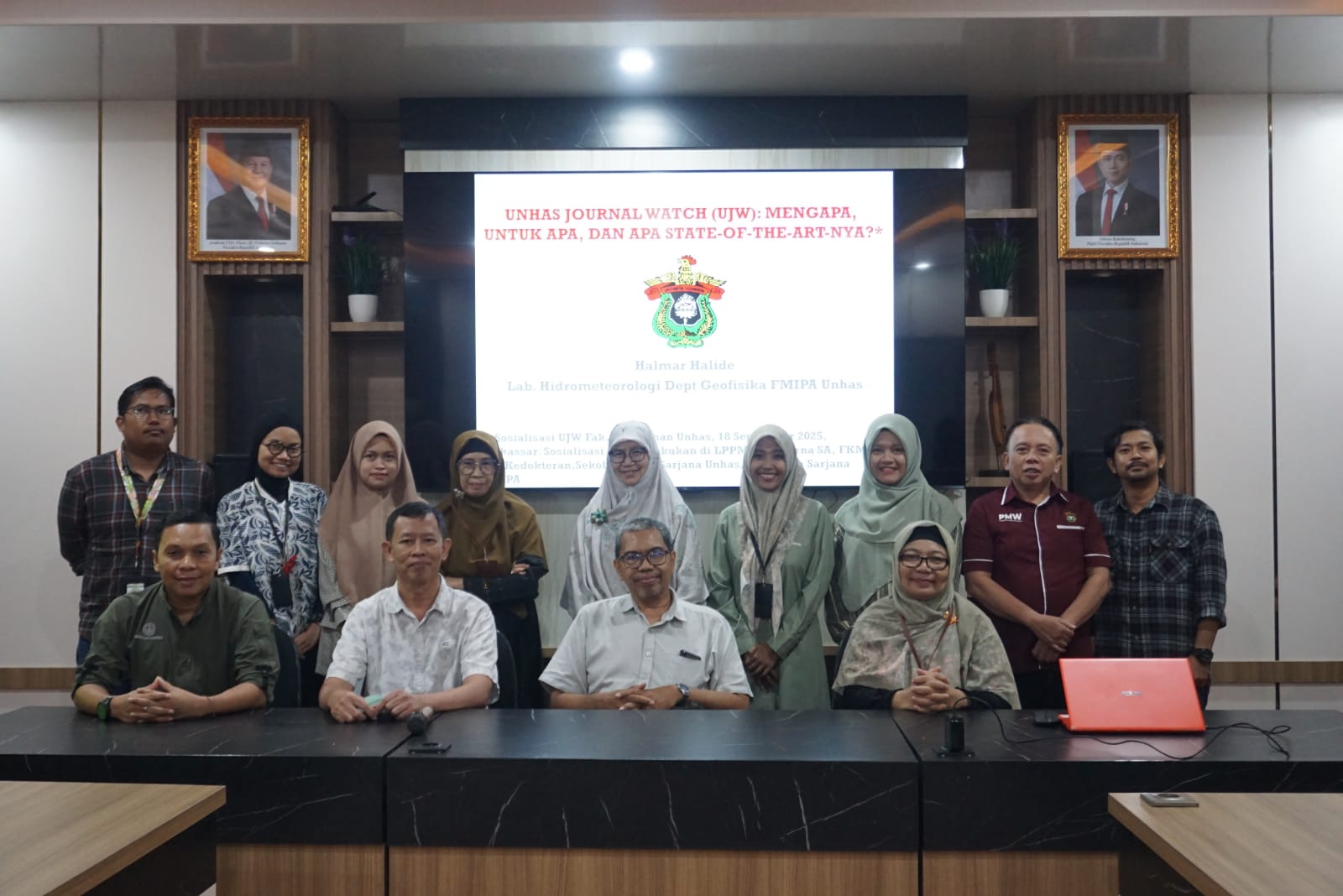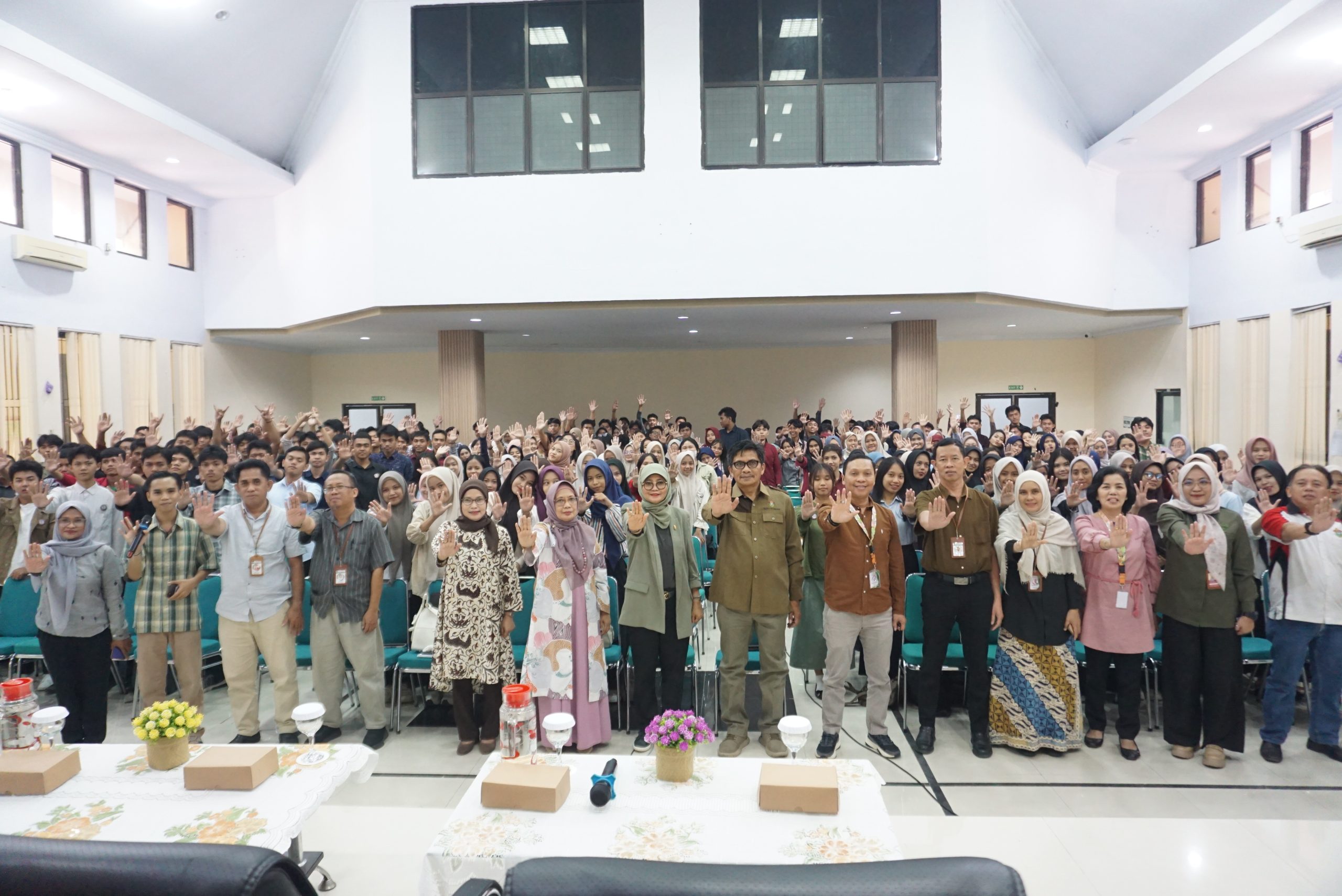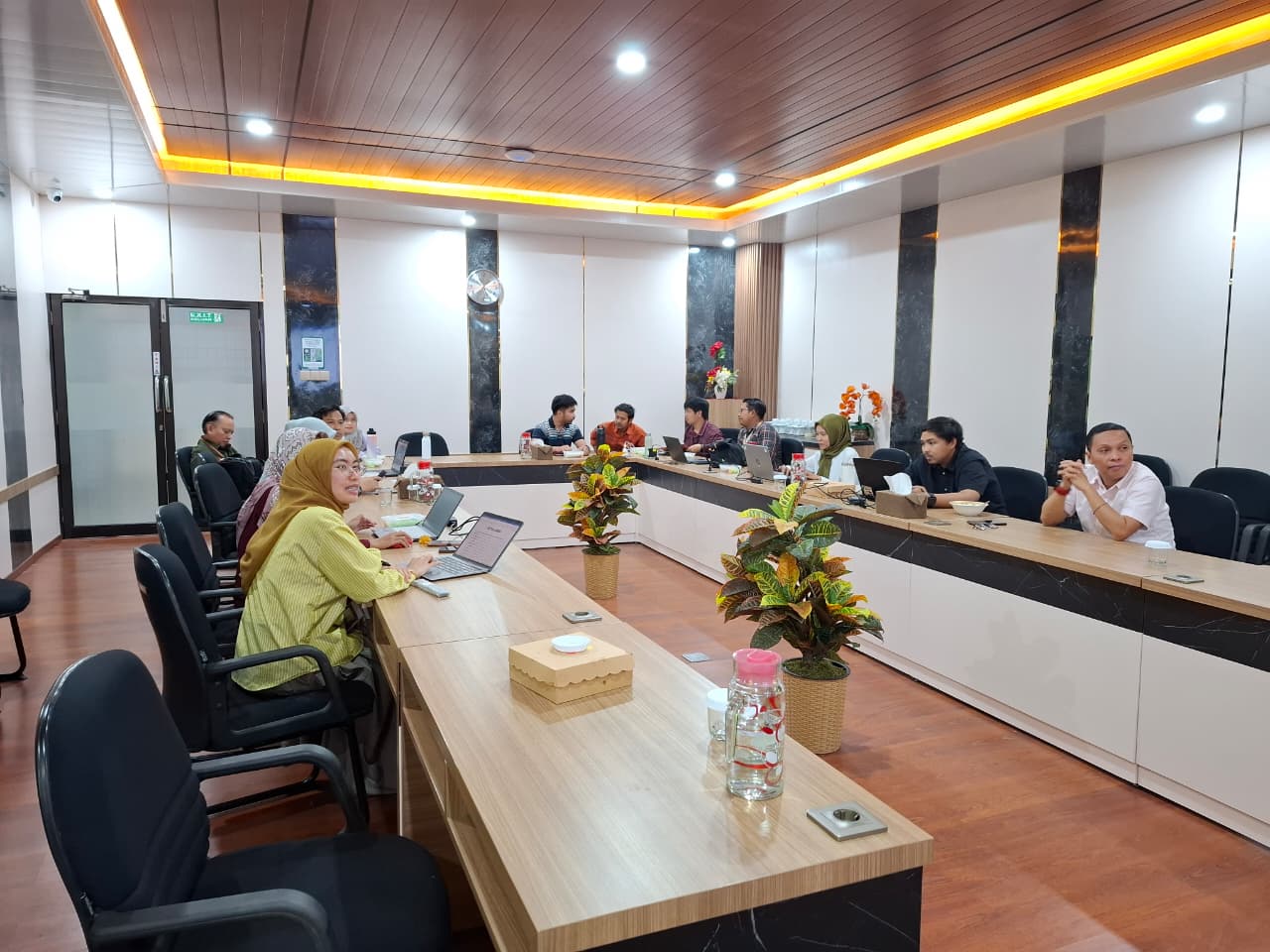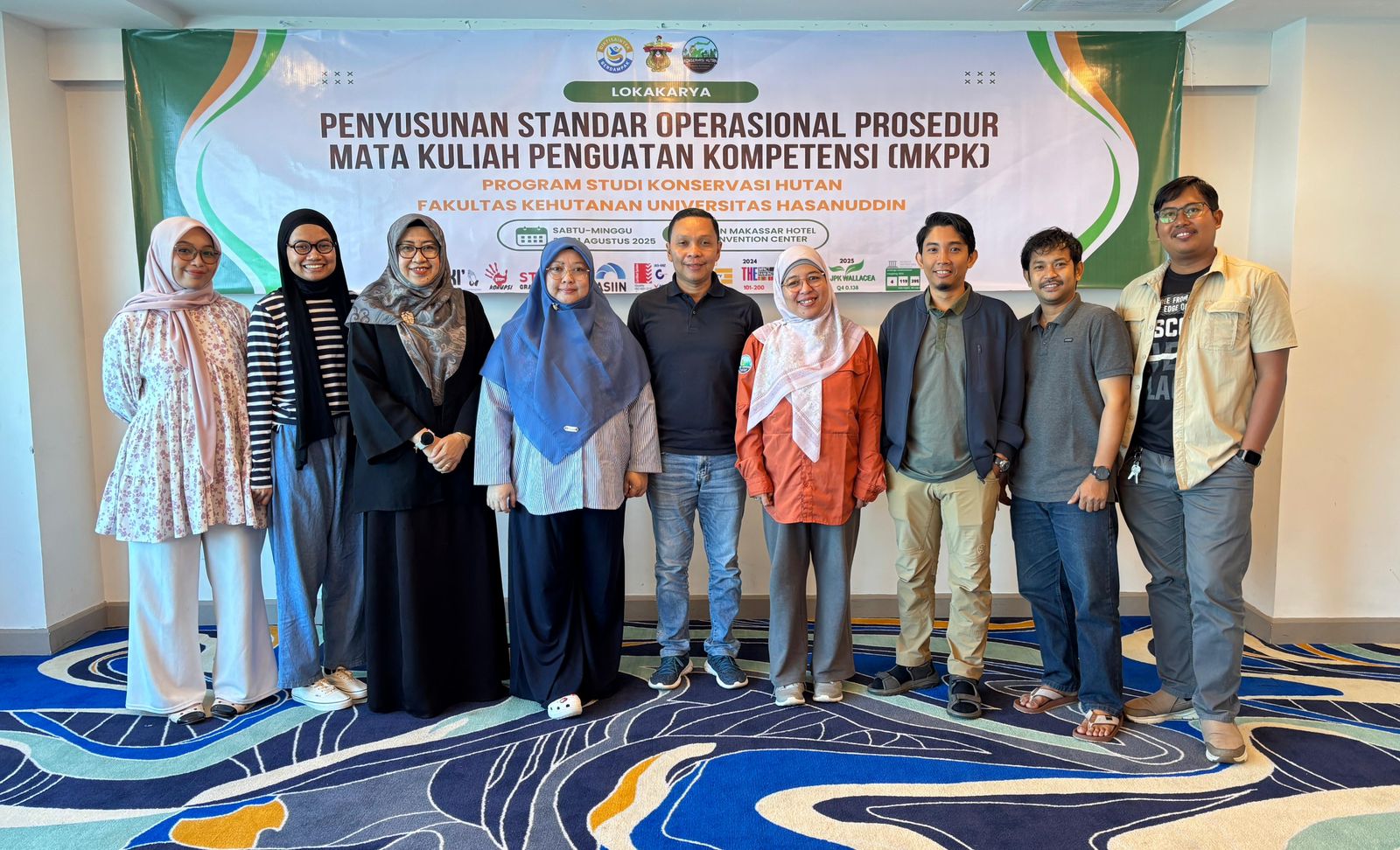Tamalanrea-Makassar. The Department of Forestry, Faculty of Forestry, Hasanuddin University (Unhas), held a socialization event for Unhas Journal Watch (UJW). The event began at 11:30 a.m. WITA in the Senate Room, 2nd Floor, Faculty of Forestry, Unhas Tamalanrea Campus, Makassar, on Thursday (September 18, 2025).
Kicking off the event, the Head of the Department of Forestry, Faculty of Forestry, Unhas, Dr. Ir. A. Sadapotto, M.P., in his remarks, stated that this event is crucial for detecting and identifying predatory journals or journals at risk of discontinuation before submitting articles.
“To improve the quality of research publications and anticipate early platforms for predatory journal publications, Unhas has developed an innovative platform called Unhas Journal Watch. This platform is specifically designed to help academics detect and identify risky journals,” explained A. Sadapotto.
Furthermore, A. Sadapotto hopes that this activity can help and make it easier for lecturers at the Faculty of Forestry, Hasanuddin University, to avoid predatory or risky journals by utilizing the UJW platform.
On the same occasion, the Deputy Dean for Partnership, Research, Innovation and Alumni of the Faculty of Forestry, Unhas, Prof. Syahidah, S.Hut., M.Si., Ph.D. in her remarks expressed her gratitude for the presence of the speakers at this activity and said that this activity is very important because compiling publications requires human resources and quite large costs.
“Publication requires greater caution because of the significant costs, effort, and time involved in writing. For example, our students submitted articles to journals, only to have them discontinued. This is certainly detrimental to us. Therefore, I hope the UJW platform can help us all avoid risky journals,” explained Prof. Syahidah.
Present as a resource person, Prof. Halmar Halide (Founder of Unhas Journal Watch) in his material conveyed that UJW is present to help the academic community in predicting journals that will have or have the potential to be discontinued.
“The large number of journals at risk of being discontinued has put our campus on the red flag category, as several lecturers and students submit articles to journals that are potentially discontinued. Therefore, to avoid this, my team and I created the UJW platform,” said Prof. Halmar.





